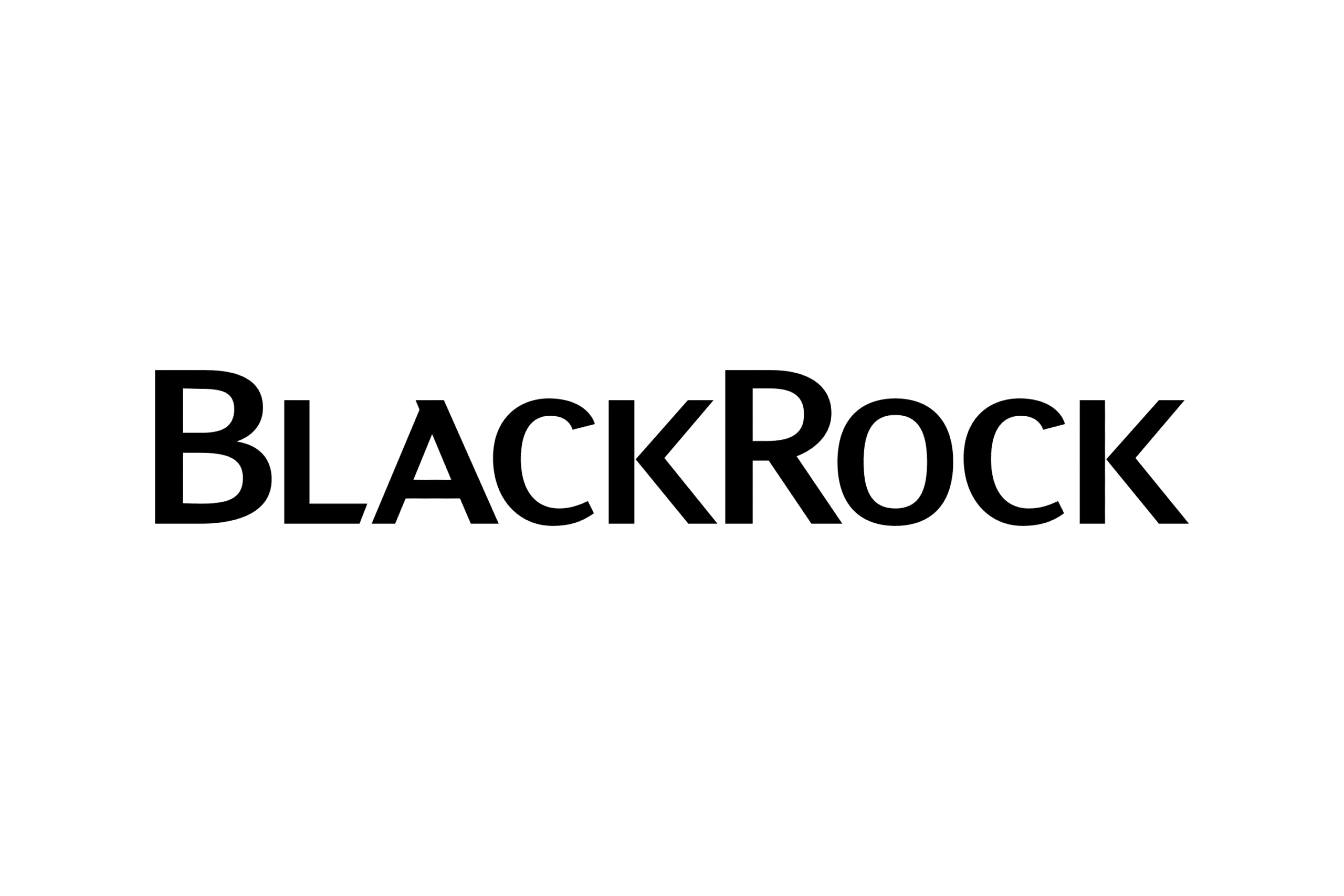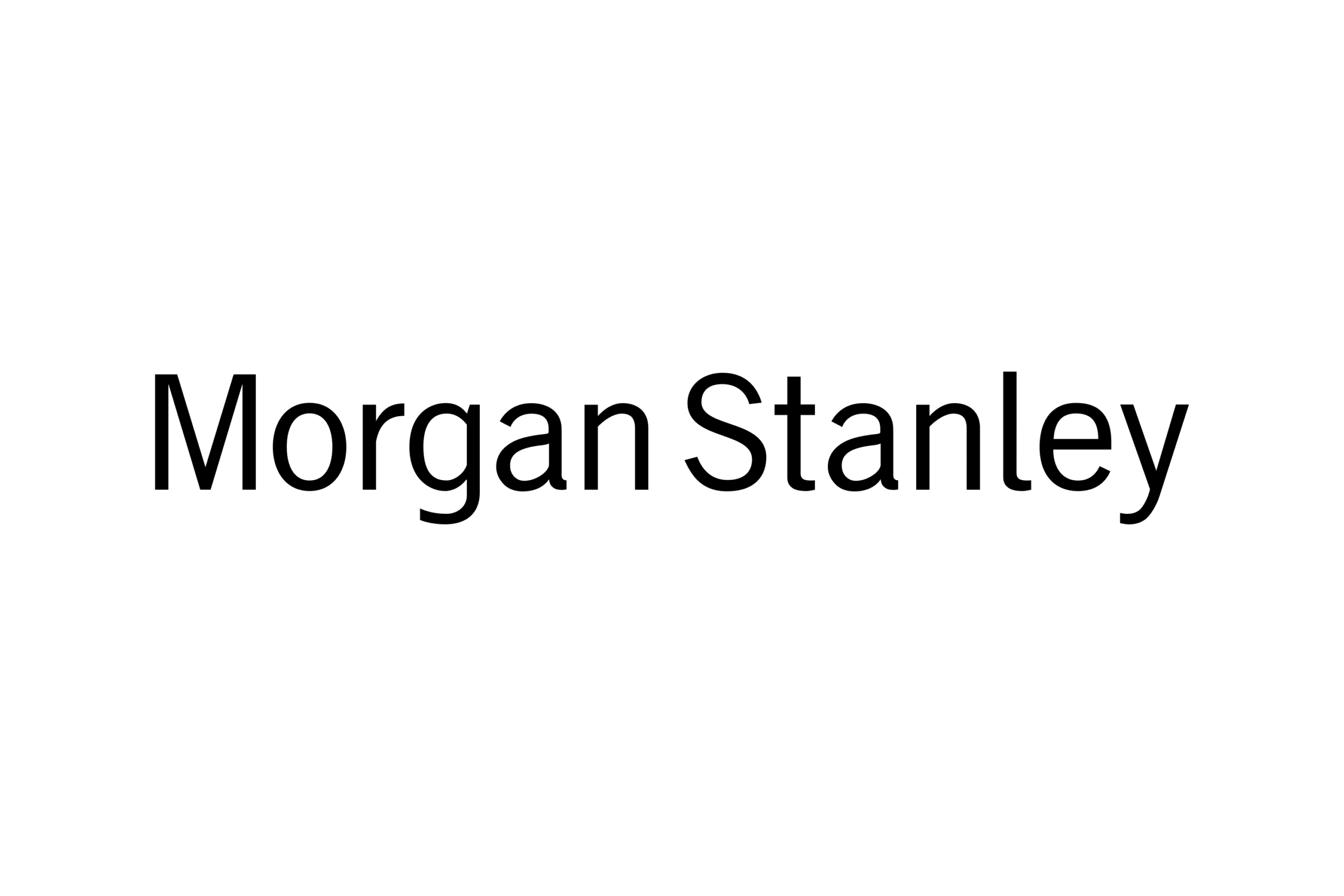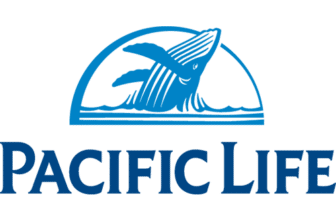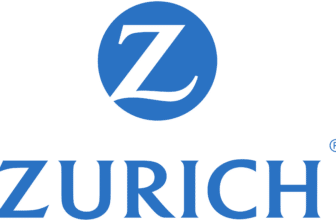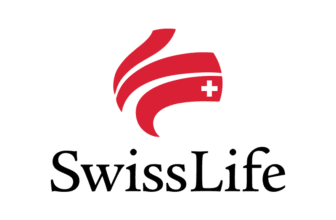BlackRock — The biggest wealth management company in the world. Get more information here.
When it comes to private placement life insurance providers, figuring out who’s the best in the biz can feel like you’re lost in a maze. That’s why we’ve done the heavy lifting for you.
We’re rolling out a ranking that cuts through the clutter and lays it all out, plain and simple. But hang on, there’s more – after you check out who’s topping our charts, we’ve got an extensive guide to help you pick the right provider for you.
In A Hurry? Here’s A Quick Top-3 Comparison:
Our team has been burning the midnight oil, digging into data from across the globe and chatting with real clients to get the inside scoop.
So, whether you’re a first-timer or a savvy investor, we’ve got your back with some solid research and straightforward advice. Let’s dive in straight into…
The Best Private Placement Life Insurance Companies Of 2024
BlackRock
Best PPLI Provider WorldwideBlackRock, the world’s largest asset management company, has significantly impacted the private placement life insurance (PPLI) industry. Through its acquisition of Philadelphia Financial Life Assurance Company and Lombard International, BlackRock has become a predominant figure in the PPLI marketplace, both domestically and internationally.
In-depth Analysis
BlackRock’s journey in PPLI services is marked by strategic growth and consolidation, evident from their successful merger of major domestic and international PPLI carriers. This move not only demonstrates their financial strength and reliability but also positions them at the forefront of the industry.
BlackRock, known for its expansive asset management capabilities, brings a wealth of investment options to the table. Their portfolio spans various asset classes, management styles, and global regions, offering clients a rich tapestry of choices to align with their financial goals.
The backbone of BlackRock’s service lies in their technological prowess and human expertise. Leveraging Aladdin®, their proprietary risk management technology, they craft retirement-focused investment plans with precision. This is complemented by a team of seasoned professionals, including industry executives and actuaries, ensuring a deep reservoir of knowledge and experience in managing PPLI policies.
BlackRock’s approach to customer service and support reflects a blend of professionalism and innovation. They provide a range of engagement platforms such as workshops, forums, and conferences, fostering informed investment decisions through active dialogue and learning. This interactive framework is further supported by a robust sales force and consultant network, bridging the gap between financial advisors and the complex world of PPLI.
In the realm of fees and transparency, while specific details are less accessible in the public domain, BlackRock’s market stature and operational scale hint at a competitive and clear fee structure. Their adherence to regulatory frameworks across jurisdictions underlines their commitment to global compliance, an essential aspect for international clients.
Customization stands as a cornerstone of BlackRock’s PPLI services. Their global platform is not just about scale. It’s about tailoring solutions that resonate with the unique needs of each client. This ability to personalize, while maintaining high standards of service and compliance, makes them a compelling choice for discerning clients.
Conclusion
BlackRock’s PPLI services are a testament to their leadership in the financial sector. They offer a harmonious blend of stability, diverse investment opportunities, expert guidance, and tailored solutions. While navigating such a vast organization might present its challenges, the depth and breadth of what they offer position them as a top contender in the PPLI space.
Lombard International
Great PPLI CompanyLombard International, a leading global wealth solutions provider, is recognized for its expertise in insurance-based solutions designed for asset protection, portability, and legacy planning.
With a history of managing complex cases for clients across multiple jurisdictions, Lombard International stands out for its ability to offer customized solutions to individuals and institutions, ensuring their assets are preserved and passed on efficiently.
In-depth Analysis
Lombard International boasts a 30-year track record in offering robust and adaptable solutions, especially in wealth, estate, and succession planning. Their cross-border capabilities and agility in addressing regulatory changes and market dynamics are highly regarded.
They have demonstrated financial robustness, as reflected in their 2020 financial results, achieving record assets under administration of €49.3 billion despite the global pandemic. Their strength is further validated by their AM Best financial strength rating of A- (Excellent) and KBRA’s insurance strength rating of A.
As a Private Placement Life Insurance provider, their solutions offer a broad range of investment options. These include insurance dedicated funds, variable insurance trusts, and separately managed accounts, allowing investments in diverse asset classes like equities, fixed income, hedge funds, and commodities. The flexibility and breadth of these options cater to a diverse client base, including those interested in sustainable and ESG investments.
One of Lombard International’s notable strengths is its competitive fee structure. PPLI products typically have lower fees and expenses compared to traditional life insurance products, reducing the financial strain on policy investment account values. This cost-efficiency is a significant advantage for high-net-worth individuals and families.
Lombard International’s dedication to maintaining top-tier services is evident in their adaptability and innovation. They have effectively embraced digital solutions like e-signatures and remote working to ensure uninterrupted service, even during challenging times like the recent global pandemic.
The company’s expertise in managing the demands of changing regulations and market dynamics is highly valued. Their in-house team’s capability to handle complex problems and provide tailored solutions reflects their depth of knowledge in the wealth assurance sector.
With a multi-jurisdictional approach, Lombard International is adept at navigating the complexities of cross-border wealth management. This global reach is essential for clients who have diversified investments and personal or business interests across different regions.
The adaptability of Lombard International’s PPLI products is a significant asset. They offer unit-linked life insurance solutions that can be tailored to meet the unique needs of individuals, families, and institutions. This customization capability is crucial for effective wealth, estate, and succession planning.
Conclusion
Lombard International’s PPLI services stand out for their financial stability, diverse investment options, competitive fee structure, and exceptional customer service. Their expertise, global reach, and customization capabilities make them a preferred choice for high-net-worth individuals and families seeking efficient wealth management solutions.
Morgan Stanley
Internationally FamousMorgan Stanley, established in New York City in 1935, has grown into one of the world’s leading financial institutions. With over 61,000 employees and 1,200 offices in 37 countries, it is renowned for its global integration of financial services.
Morgan Stanley offers a broad range of financial advice, products, and execution services to individual investors, companies, and government agencies, specializing in financial advisement and a plethora of insurance options, including Private Placement Life Insurance.
In-depth Analysis
Morgan Stanley’s long-standing presence and global reach, with substantial resources and extensive experience in global investment, provide a strong foundation of financial stability and reliability.
PPLI at Morgan Stanley offers access to a wide range of investment vehicles, including hedge funds, alternative assets, and commodities. This unique aspect of PPLI is ideal for high net worth individuals, providing diverse investment opportunities not typically available in universal life products.
The institution provides clear and competitive fees, particularly in the context of PPLI. The policies often feature lower commissions compared to other retail life insurance options and are devoid of surrender charges.
While specific details on customer service are not readily available, Morgan Stanley’s reputation in financial advisement suggests a high level of client support and professionalism, essential for the complex nature of PPLI policies.
The firm’s extensive experience in financial services, including life insurance through partnerships with other companies, demonstrates a profound level of expertise vital for managing sophisticated PPLI policies.
Morgan Stanley’s substantial global presence and its ability to operate across different jurisdictions are crucial for PPLI, especially considering the international nature of investments and the need for compliance with varied legal frameworks.
PPLI policies at Morgan Stanley are highly customizable, catering to the unique financial needs of ultra high net worth individuals. This includes the ability to invest in a variety of financial vehicles with different tax options, offering a distinct advantage over direct investments.
Conclusion
Morgan Stanley stands out for its global stature, financial advisement expertise, and a diverse range of investment options under PPLI. Their approach to PPLI is marked by a blend of innovation, customizability, and strategic investment opportunities, making it an attractive option for high net worth individuals looking for tax-efficient, diversified investment solutions.
Zurich North America
Swiss Capital In The USZurich North America, a subsidiary of Zurich Insurance Group, has established itself as a key player in the insurance and financial services industry. With a history spanning over a century, it has developed a reputation for offering a range of services catering to various customer needs, including high net worth individuals. Among its offerings, Private Placement Life Insurance stands out as a significant service, especially for individuals managing substantial wealth.
In-depth Analysis
Zurich North America’s long-standing presence in the market is a testament to its financial stability and reliability. Historical data suggests a consistent performance, highlighting its capability to weather financial turbulences, which is crucial for PPLI policyholders seeking long-term security.
Zurich’s PPLI services offer a diverse range of investment choices. These options are designed to cater to the sophisticated investment palate of high net worth individuals. Performance metrics of these investments indicate competitiveness in the market, although it’s essential for potential clients to evaluate these options in line with their individual risk profiles.
Transparency in fee structure is a critical aspect of Zurich’s services. The fees are positioned competitively in the market, though they might not be the lowest. It’s important for clients to weigh the value of services against these costs.
The quality of customer service at Zurich North America is commendable. The company provides personalized support, which is a crucial factor for clients who demand high levels of service and attention.
Zurich’s expertise in managing PPLI policies is evident from its skilled team of professionals. The depth of knowledge and experience in handling complex insurance structures is a significant advantage for clients.
Zurich’s global presence enables it to offer PPLI services across various jurisdictions, adhering to international laws. This aspect is particularly beneficial for clients with global interests.
The provider shows a strong ability to tailor policies to individual needs. This customization is vital for high net worth individuals, ensuring that their unique requirements are met.
Conclusion
Zurich North America’s PPLI services exhibit a robust combination of financial stability, diverse investment options, and expertise. While their fee structure and global compliance add to their strengths, it’s their customer service and customization capabilities that truly set them apart for high net worth individuals.
How To Choose The Best Private Placement Life Insurance Providers?
The realm of Private Placement Life Insurance (PPLI) presents a complex, yet potentially rewarding landscape for high net worth individuals seeking efficient wealth management solutions.
At its core, PPLI is a unique form of life insurance, distinct from traditional policies due to its investment component and tax benefits. It allows policyholders to invest in a broader array of assets while benefiting from the tax-efficient structure of life insurance.
PPLI policies are tailored to individual financial situations, making them a flexible tool for estate planning, asset protection, and tax optimization. For instance, a policyholder might leverage a PPLI policy to invest in growth-oriented assets while minimizing the tax impact on investment returns.
The Role of PPLI in Wealth Management
For high net worth individuals, PPLI serves as a strategic component in comprehensive wealth management. By offering a combination of life insurance coverage and investment opportunities, PPLI provides a dual advantage.
It not only ensures financial protection for beneficiaries but also facilitates the growth of investments in a tax-advantaged environment. This makes it an attractive option for those looking to diversify their investment portfolio while maintaining a focus on legacy planning.
Comparative Analysis with Traditional Insurance Products
When compared to traditional insurance products, PPLI stands out for its investment flexibility and tax efficiency. Unlike standard life insurance policies, which typically offer limited investment options, PPLI allows for a more diverse and customized investment portfolio.
This flexibility enables policyholders to align their PPLI investments with broader financial goals and market opportunities. Additionally, the tax benefits associated with PPLI, such as tax-deferred growth and tax-free access to cash values, provide a significant advantage over conventional insurance products.
The Importance of Selecting the Right PPLI Provider
Choosing the right PPLI provider is crucial to maximize the benefits of the policy. This decision should be based on a thorough evaluation of the provider’s financial stability, investment options, fee structure, and expertise in managing PPLI policies.
For example, a provider with a robust financial background and a wide array of investment choices can offer more effective wealth management solutions within the PPLI framework.
Decoding PPLI: What It Means for High Net Worth Individuals

Private Placement Life Insurance (PPLI) is an advanced financial tool designed specifically for high net worth individuals. Its primary allure lies in the unique blend of life insurance coverage with the added benefit of investment flexibility, serving as a vehicle for tax-efficient wealth growth and asset protection.
The customization of PPLI policies allows them to be tailored to the specific financial goals and circumstances of each individual, making them a strategic choice for those seeking to optimize their financial planning.
A Tax-Efficient Investment Vehicle
One of the key advantages of PPLI is its ability to offer tax-efficient investment growth. The earnings within a PPLI policy accumulate tax-deferred, and when structured correctly, withdrawals and policy loans can be made tax-free.
This tax advantage is particularly significant for investments that would otherwise generate substantial taxable income. For instance, an investment portfolio within a PPLI policy that comprises high-yield bonds or dividend-generating stocks can grow without the immediate tax liability that would typically apply to such earnings.
Asset Protection Features
PPLI also provides robust asset protection. In many jurisdictions, life insurance policies are protected from creditors, making PPLI an effective tool for safeguarding assets. This feature is crucial for high net worth individuals who may be more exposed to legal disputes or creditor claims. The protection extends to the cash value of the policy, providing a secure haven for invested assets.
Estate Planning and Wealth Transfer
In estate planning, PPLI plays a pivotal role by offering efficient mechanisms for wealth transfer. The death benefit of a PPLI policy is generally paid out tax-free to the beneficiaries, providing a method to pass on wealth without the significant tax burden that can accompany other forms of inheritance.
Furthermore, when a PPLI policy is owned by an irrevocable trust, it can potentially be excluded from the taxable estate, thus reducing estate taxes while providing financial support to beneficiaries.
Investment Flexibility and Diversification
The investment component of PPLI policies stands out for its flexibility. Unlike traditional life insurance policies, PPLI allows for investment in a wide array of assets, including but not limited to, hedge funds, private equity, and real estate.
This flexibility enables policyholders to diversify their investment portfolios, aligning them with personal risk tolerances and financial goals. Additionally, PPLI policies can be structured to allow for changes in investment choices over time, adapting to shifting market conditions or personal preferences.
Compliance and Regulatory Considerations
Compliance with legal and regulatory standards is a critical aspect of managing a PPLI policy. Due to their complex nature, PPLI policies must be structured to comply with relevant tax laws and insurance regulations.
This includes adhering to rules around investor control and ensuring that the policy qualifies as life insurance under applicable laws. Non-compliance can lead to adverse tax consequences, so it’s imperative to work with experienced advisors who can navigate the regulatory landscape effectively.
PPLI offers high net worth individuals a multifaceted tool for wealth management, combining tax efficiency, asset protection, and estate planning benefits with investment flexibility. However, the complexities of PPLI demand a thorough understanding of its features, benefits, and regulatory requirements, underscoring the importance of professional guidance in leveraging this sophisticated financial instrument effectively.
Choosing the Right PPLI Company

Selecting the right Private Placement Life Insurance company is a pivotal decision for high net worth individuals, demanding a deep dive into technical specifics and informed comparisons. This task is about more than just superficial evaluations.
It’s a meticulous process of analyzing, contrasting, and discerning the nuances that make one PPLI company more suitable for your specific needs than another. Let’s dissect this process in a detailed, technical manner, focusing on tangible examples and clear comparisons to guide your decision-making.
Assessing Financial Stability and Track Record
The financial stability of a PPLI provider is your first checkpoint. Look for companies that have consistently demonstrated strong financial performance over the years. For example, a provider with a consistently high rating from agencies like Moody’s or Standard & Poor’s is indicative of financial robustness.
Consider Company A with an A++ rating from A.M. Best, which signifies superior financial stability, versus Company B with a B rating, suggesting a more uncertain financial standing.
The difference in ratings can be a crucial indicator of the company’s ability to meet its long-term policy and contract obligations.
Analyzing Investment Options: Diversity and Performance
A top-notch Private Placement Life Insurance provider offers a diverse range of investment options to cater to varying risk tolerances and financial goals. Examine the performance history of the investment options each company offers.
For instance, if you’re interested in a balanced mix of equities and bonds, compare how Company A’s balanced fund has performed over the past five years against Company B’s. Look for consistency in returns and how they’ve managed downturns in the market.
An in-depth analysis of the underlying assets, fund managers’ experience, and investment strategies employed gives you a clearer picture of what to expect from your investment.
Fee Structure: Clarity and Comparison
Understanding the fee structure is critical in choosing a private placement life insurance companies. It’s not just about the amount but also about how these fees are structured and applied. Company A might offer a lower upfront cost but higher ongoing management fees, while Company B might have higher initial fees but lower annual charges.
Evaluate which structure aligns better with your financial strategy. Ask for detailed breakdowns of all fees, including premium loads, administrative charges, and fund management fees, to avoid any hidden costs.
Customer Service and Support: Beyond the Basics
Examine the level of customer service and support offered. This can be as simple as comparing response times, accessibility of advisors, or the availability of bespoke services.
For instance, Company A may provide 24/7 online access and a dedicated account manager, while Company B might offer more generic customer service options. Personalized service can be crucial, especially in complex financial situations requiring nuanced advice and rapid response.
Technical Expertise: Case Studies and Specifics
The technical expertise of a PPLI company is a non-negotiable aspect. Review case studies or specific examples of how the company has handled complex policies. For instance, how did Company A navigate a particularly challenging tax scenario for a client? What innovative solutions did Company B implement to maximize the benefits of a PPLI policy for an international client? These examples can provide insight into the company’s expertise and ability to handle situations similar to yours.
For individuals with international assets or interests, the PPLI company’s global reach and understanding of various jurisdictions are crucial. Compare how different companies manage policies across borders.
For example, Company A might have a strong presence in Europe and Asia, offering tailored solutions compliant with regional regulations, whereas Company B is more U.S.-centric. If your financial interests are global, the former may be a better fit.
Customization Capabilities: Beyond Standard Offerings
The ability to customize policies to fit individual needs is another critical factor. Compare the extent to which companies are willing to customize.
While Company A might offer a degree of customization, Company B may go further, allowing more flexibility in investment choices, death benefits options, and policy structures. The depth of customization can significantly impact the efficiency and relevance of your PPLI policy.
Long-Term Partnership: Evaluating Alignment with Goals
Finally, consider each PPLI company’s approach to long-term partnerships. How well do they align with your evolving financial goals?
For example, Company A may have a track record of adapting policies to changing client circumstances, whereas Company B may have a more static approach. The right PPLI provider should be a partner who grows and adapts with your changing financial landscape.
Choosing the right PPLI company is a process that requires a detailed technical assessment, specific comparisons, and a deep understanding of your unique financial needs and goals. By meticulously evaluating these factors, you can make an informed decision that ensures your PPLI policy is not just a financial tool, but a strategic asset in your wealth management portfolio.
Global PPLI Providers: Understanding the International Landscape

In the realm of Private Placement Life Insurance, the global landscape presents a diverse and intricate tableau of providers, each with unique strengths and specialties.
Understanding this landscape is critical for high net worth individuals looking to leverage PPLI for international wealth management. The following will be a detailed, and analytical overview of the global PPLI market, offering insight into how various international providers operate and the specific benefits they offer.
The PPLI market is heavily influenced by regional regulations and compliance standards. For instance, European private placement life insurance companies operate under the EU’s stringent regulatory framework, which emphasizes transparency and consumer protection.
In contrast, providers in offshore jurisdictions like Bermuda or the Isle of Man may offer more flexibility in policy structuring but come with different regulatory considerations. It’s essential to understand how these legal landscapes can impact your PPLI policy, especially in terms of tax implications and reporting requirements. An analysis of various jurisdictions can reveal how providers adapt their policies to local regulations, ensuring legal compliance while striving to maximize benefits for policyholders.
Comparative Analysis of Investment Opportunities
Different regions offer varying investment opportunities within PPLI policies. Providers in mature markets like the United States or the United Kingdom often have access to a broad range of traditional and alternative investment options, backed by well-developed financial systems.
Emerging markets, on the other hand, might offer unique investment opportunities that could lead to higher returns, albeit with potentially higher risks. For instance, a PPLI provider in Asia may have better access to fast-growing economies and emerging sectors, providing a different investment profile compared to a provider in North America. Understanding these differences is crucial in aligning your PPLI policy with your investment strategy and risk tolerance.
Assessing Global Economic Stability and Impact
Economic stability plays a significant role in the performance of PPLI policies. Providers in economically stable countries tend to offer more security and predictability in policy performance. For instance, countries with stable currencies and strong economic indicators can offer a more secure environment for long-term investments within PPLI policies.
In contrast, providers in regions with economic volatility might offer higher potential returns but at the cost of increased risk. Analyzing global economic trends can provide insights into which regions may offer the most advantageous conditions for your PPLI investments.
Cultural and Operational Nuances of International Providers
Cultural and operational nuances can significantly impact the service and offerings of PPLI providers. Providers in different regions may have varying approaches to customer service, policy customization, and communication.
For example, a provider in Asia might place a higher emphasis on personal relationships and face-to-face interactions, while a European provider might focus more on online services and digital communication. Understanding these cultural differences can help in choosing a provider that aligns with your preferences and expectations.
Technological Advancements and Digital Integration
The level of technological advancement and digital integration varies significantly among global private placement life insurance companies. Some providers, especially in technologically advanced regions, offer sophisticated online platforms for policy management, real-time reporting, and digital communication. This can enhance the efficiency and accessibility of managing your PPLI policy.
In contrast, providers in less technologically advanced regions might rely more on traditional methods of communication and policy management. Assessing the technological capabilities of a provider is essential, especially if digital accessibility and efficiency are high priorities for you.
Strategic Partnerships and Global Networks
Many PPLI providers form strategic partnerships and networks to enhance their global reach and capabilities. These networks can provide access to a wider range of investment opportunities, specialized expertise, and global market insights.
For instance, a U.S.-based PPLI provider might have partnerships with firms in Europe or Asia, allowing for a more diverse and globalized approach to policy structuring and investment management. Evaluating a provider’s partnerships and network can give you a better understanding of their global capabilities and how they can add value to your PPLI policy.
Understanding the international landscape of PPLI providers requires a detailed, analytical approach. By examining regulatory environments, investment opportunities, economic stability, cultural nuances, technological capabilities, and global networks, you can gain a comprehensive understanding of what different global providers offer. This knowledge is crucial in selecting a PPLI provider that not only meets your specific needs but also aligns with your global financial strategy.
Deep Dive: Technical Aspects of PPLI Policies

Delving into the technical aspects of Private Placement Life Insurance policies is essential for high net worth individuals considering this sophisticated financial tool. A detailed, educational, and analytical approach is required to unravel the complexities of PPLI policies, ensuring a comprehensive understanding of their structure, benefits, and potential implications.
Understanding the Policy Structure
The structure of a PPLI policy is a fundamental aspect that dictates its performance and compliance. Typically, PPLI policies are structured as either variable universal life insurance policies or whole life policies. The key difference lies in their investment flexibility.
Variable policies allow for a broader range of investment options, including hedge funds, private equity, and real estate, offering greater control over investment decisions. Whole life policies, however, may have more limited investment options but offer a guaranteed death benefit and cash value growth. For instance, a variable policy might allow the policyholder to invest in a portfolio of international equities, while a whole life policy might be limited to more conservative, fixed-income assets.
Investment Choices within PPLI
The range of investment choices within PPLI policies is a crucial element. These choices significantly impact the policy’s growth potential and tax efficiency. PPLI policies can include a variety of assets such as stocks, bonds, mutual funds, and even alternative investments like real estate or private equity.
The tax-advantaged nature of PPLI policies means that the returns from these investments typically grow tax-free. For example, a PPLI policy investing in a high-growth stock portfolio can accumulate significant earnings without the immediate tax burden typically associated with such investments.
Tax Implications and Compliance
One of the primary advantages of PPLI policies is their favorable tax treatment. Earnings within the policy grow tax-deferred, and policyholders can access the cash value of the policy through tax-free loans or withdrawals, subject to certain conditions.
However, it’s crucial to understand the compliance requirements, such as the IRS’s guidelines on investor control and diversification requirements. A failure to comply can result in significant tax penalties and the policy being treated as a taxable investment account. For instance, if a policyholder exerts excessive control over the policy’s investments, it could violate the investor control rules, leading to adverse tax consequences.
Policy Loans and Withdrawals
Policy loans and withdrawals are features that add flexibility to PPLI policies. Policyholders can borrow against the cash value of their policy, often at favorable interest rates, without disrupting the policy’s investment strategy. However, it’s important to understand the terms and impacts of these loans. For example, if a policy loan exceeds the policy’s cash value, it could lead to the policy lapsing, resulting in tax liabilities.
Costs and Charges Associated with PPLI
The costs and charges associated with PPLI policies can vary significantly and impact the policy’s overall cost-effectiveness. These costs typically include premium loads, administrative fees, and investment management fees.
A detailed analysis of these fees is crucial to assess the policy’s value. For instance, a PPLI policy with high administrative fees but low investment management fees might be more cost-effective for a policyholder with a large investment portfolio within the policy.
Customization and Flexibility
PPLI policies offer a high degree of customization and flexibility to meet the specific needs of high net worth individuals. This includes the ability to tailor the death benefit, choose the investment strategy, and adjust the policy as personal or financial circumstances change. For example, a policyholder might initially choose a conservative investment strategy but later shift to a more aggressive approach as their financial goals evolve.
Understanding the technical aspects of PPLI policies is crucial for making informed decisions. This includes a thorough analysis of the policy structure, investment choices, tax implications, loan and withdrawal options, associated costs, and the degree of customization and flexibility offered. By dissecting these elements in a detailed and analytical manner, high net worth individuals can better appreciate the intricacies of PPLI and how it can be leveraged effectively in their wealth management strategy.

In the complex and often opaque world of Private Placement Life Insurance, navigating the legal and regulatory waters is a critical aspect that requires a detailed, educational, and analytical approach. Understanding these legal and regulatory frameworks is not just about compliance. It’s about strategically leveraging these rules to optimize your PPLI policy.
Understanding Global Regulatory Frameworks
The regulatory landscape for PPLI varies significantly across different jurisdictions, impacting policy structuring and administration. For instance, in the United States, PPLI is governed by specific IRS regulations that outline the requirements for life insurance contracts, including investor control and diversification rules. These regulations dictate how policyholders can invest and manage the assets within their PPLI policies.
On the other hand, European regulations, such as the European Union’s Directive on Insurance Distribution (IDD), focus more on policy distribution and disclosure requirements. A comparative analysis of these regulations helps in understanding the operational nuances of PPLI providers in different regions and their compliance strategies.
Compliance with Tax Laws and Reporting Obligations
Compliance with tax laws is a pivotal aspect of managing a PPLI policy. The tax advantages of PPLI are significant, but they come with stringent compliance requirements. For example, in the U.S., policyholders must adhere to the guidelines set forth in the Internal Revenue Code (IRC), including the rules regarding the tax treatment of life insurance contracts.
Failure to comply can lead to the policy being treated as a taxable investment account, nullifying its tax benefits. In addition, reporting obligations such as the Foreign Account Tax Compliance Act (FATCA) in the U.S. or the Common Reporting Standard (CRS) globally, impose additional reporting requirements on policyholders with international financial assets.
Legal Considerations in Policy Structuring
The legal structure of a PPLI policy is also subject to various legal considerations. These include the ownership structure of the policy, which can impact estate planning and asset protection strategies. For instance, a PPLI policy owned by a trust might offer different estate planning benefits compared to a policy owned directly by an individual.
Understanding these legal nuances is crucial in structuring a PPLI policy that aligns with your financial goals and provides the desired level of asset protection and estate planning benefits.
Regulatory Changes and Their Impact
The regulatory environment for PPLI is not static and is subject to change. Keeping abreast of regulatory changes is crucial for maintaining the compliance and efficacy of PPLI policies. For instance, recent changes in tax laws or insurance regulations in a particular jurisdiction can affect the attractiveness and functionality of PPLI policies in that region.
Staying informed about these changes allows policyholders and their advisors to adjust their strategies accordingly and ensure that their PPLI policies continue to meet their intended objectives.
Cross-Border Considerations in PPLI
For high net worth individuals with international interests, understanding the cross-border legal and regulatory implications of PPLI is essential. Different countries have varied rules regarding the recognition and treatment of foreign insurance policies.
For example, a PPLI policy issued in one country might not be recognized as a valid life insurance contract in another, impacting its tax treatment and legal status. Navigating these cross-border legal complexities requires a thorough understanding of the international legal landscape and how it affects PPLI policies.
Understanding the potential legal disputes and litigation risks associated with PPLI is also crucial. While PPLI offers many benefits, it can also be subject to legal challenges, especially in scenarios involving creditor claims, divorce settlements, or disputes over policy ownership. For instance, a creditor might challenge the asset protection features of a PPLI policy, arguing that it was structured to fraudulently shield assets. Being aware of these potential legal risks and how to mitigate them is an essential part of managing a PPLI policy.
Navigating the legal and regulatory waters of PPLI requires a detailed, analytical approach that takes into account the global regulatory frameworks, compliance with tax laws, legal considerations in policy structuring, impacts of regulatory changes, cross-border considerations, and potential legal disputes. By understanding these aspects, high net worth individuals can ensure that their PPLI policies are not only compliant but also strategically aligned with their financial objectives.
Real-Life Scenarios: Learning from Examples

In the intricate world of Private Placement Life Insurance, real-life scenarios and case studies provide invaluable insights into how these policies function in practice. By analyzing specific examples, we can glean lessons and strategies that can be applied to similar situations.
Now let’s discuss a few real-life scenarios that illustrate the practical application, benefits, challenges, and solutions associated with PPLI policies, using a technical, detailed, and analytical approach.
Scenario 1: Successful Asset Growth and Tax Efficiency
In this scenario, we examine the case of Mr. Miller, a high net worth individual who utilized a PPLI policy for asset growth and tax efficiency. Mr. Miller, with a diverse investment portfolio, including real estate, stocks, and bonds, sought a vehicle to grow his assets tax-efficiently.
He chose a PPLI policy for its tax-deferred growth potential. Over a period of 10 years, the investments within his PPLI policy, managed by a team of skilled professionals, saw significant growth, largely due to the tax advantages offered by the policy.
The policy allowed the investments to compound tax-free, resulting in a substantial increase in the policy’s cash value, which Mr. Miller could access through tax-free loans and withdrawals, subject to policy terms.
This scenario involves Ms. McCarthy, an international businesswoman with financial interests across multiple countries. She opted for a PPLI policy to manage her global assets efficiently. However, she faced challenges with the varying regulatory environments in different jurisdictions.
Ms. McCarthy’s PPLI policy had to be carefully structured to comply with the diverse regulations, including IRS rules in the U.S. and local insurance and tax laws in other countries where she held assets.
Her case highlights the importance of working with knowledgeable advisors and choosing a PPLI provider with expertise in international regulations to navigate these complexities successfully.
Scenario 3: Estate Planning and Succession
In another instance, Mr. and Mrs. Baum used a PPLI policy as part of their estate planning strategy. With a large family and a substantial estate, they sought a solution to pass on their wealth efficiently while minimizing estate taxes.
Their PPLI policy was structured to offer a significant death benefit, which would be paid out tax-free to their beneficiaries, providing liquidity for estate taxes and other expenses.
This scenario demonstrates how PPLI can be an effective tool in estate planning, offering both tax efficiency and a mechanism for wealth transfer.
Scenario 4: Overcoming Investor Control Issues
A common challenge in PPLI is maintaining compliance with the investor control rules. This scenario involves Mr. Morgan, a savvy investor who initially exerted too much control over the investments within his PPLI policy, risking the policy’s tax-advantaged status.
With the guidance of his advisors, Mr. Morgan restructured his involvement to comply with the IRS rules, ensuring that the policy retained its tax benefits. This example underscores the importance of understanding and adhering to investor control regulations in PPLI policies.
Scenario 5: Addressing Liquidity Needs
Finally, we look at the case of Mrs. Dawson, who required liquidity for a new business venture. She leveraged her PPLI policy to access cash without disrupting her investment strategy. By taking out a policy loan against the cash value of her PPLI policy, Mrs. Dawson was able to finance her business needs at favorable interest rates, demonstrating the flexibility and liquidity options available through PPLI.
These real-life scenarios illustrate the diverse applications and nuances of PPLI policies. From asset growth and tax efficiency to estate planning and regulatory compliance, PPLI offers a range of solutions for high net worth individuals. However, each scenario also highlights the importance of careful planning, expert advice, and adherence to regulatory requirements to fully realize the benefits of PPLI.
Trends and Innovations in the PPLI Space

The Private Placement Life Insurance market is continually evolving, with new trends and innovations shaping its landscape. Understanding these changes is crucial for anyone considering PPLI as a wealth management tool.
Emergence of Customized Investment Options
A significant trend in the PPLI market is the rise of customized investment options. Traditionally, PPLI policies were somewhat limited in terms of investment choices. However, recent innovations have led to a more tailored approach, with policies now offering a wider range of asset classes, including alternative investments like private equity, hedge funds, and real estate.
For example, a PPLI provider may now offer a policy that includes a bespoke portfolio of international equities and fixed-income securities, specifically tailored to the policyholder’s risk tolerance and investment objectives.
Technological Advancements in Policy Management
Technological advancements have significantly impacted the management and administration of PPLI policies. Digital platforms are increasingly being used for policy application, management, and reporting. These platforms offer enhanced transparency, real-time access to policy information, and streamlined administrative processes.
For instance, a PPLI provider might utilize a sophisticated online portal that allows policyholders to view their policy performance, make changes to their investment choices, and access detailed reporting, all in real-time.
Focus on Global Compliance and Reporting
With the increasing globalization of wealth, compliance and reporting have become more complex and crucial in the PPLI space. Providers are now offering solutions that are designed to comply with international tax laws and reporting standards, such as the Common Reporting Standard (CRS) and the Foreign Account Tax Compliance Act (FATCA).
This trend reflects the need for PPLI policies to be structured in a way that is compliant with the regulatory requirements of multiple jurisdictions. For example, a PPLI provider may have developed a specialized team to ensure that policies comply with both the tax regulations of the policyholder’s home country and the international standards.
Integration of Sustainable and ESG Investing
Sustainable and Environmental, Social, and Governance (ESG) investing is another growing trend in the PPLI market. More policyholders are looking to align their investments with their values, leading to an increase in PPLI policies that include ESG-focused investment options.
Providers are responding to this demand by incorporating sustainable investment strategies into their offerings. For instance, a PPLI policy might now include a range of ESG-compliant funds or direct investments in sustainable projects.
Expansion of Estate Planning Features
There is also a noticeable trend towards the expansion of estate planning features within PPLI policies. Providers are increasingly offering more sophisticated options to address complex estate planning needs, such as integrating the policy with trusts and other estate planning vehicles. This trend is particularly relevant for high net worth individuals looking to leverage PPLI for wealth transfer and succession planning. For example, a PPLI policy might be structured to provide liquidity for estate taxes while minimizing the tax impact on the transfer of wealth to beneficiaries.
Innovations in Underwriting and Risk Assessment
Finally, innovations in underwriting and risk assessment are changing the way PPLI policies are issued. Advances in data analytics and predictive modeling are enabling providers to offer more personalized underwriting processes, which can result in more favorable policy terms and pricing. For example, a PPLI provider might use advanced analytics to assess a policyholder’s risk profile more accurately, leading to a more tailored and cost-effective policy.
The PPLI space is undergoing significant changes, driven by innovations in investment options, technology, compliance, sustainable investing, estate planning, and underwriting. These trends reflect the evolving needs of high net worth individuals and the industry’s response to these demands, offering more sophisticated, compliant, and personalized PPLI solutions. Understanding these trends is key for anyone looking to leverage PPLI as part of their wealth management strategy.
Sidestepping Common Traps in Picking a PPLI Provider

Choosing a Private Placement Life Insurance provider is a decision fraught with potential pitfalls. High net worth individuals must navigate these carefully to ensure they select a provider that truly aligns with their financial goals and needs.
Now let’s talk about some common traps in selecting a PPLI provider and offer a technical, detailed, and analytical approach to avoiding them, ensuring a decision that is both informed and beneficial.
Overlooking Provider’s Financial Stability and Track Record
A common mistake is neglecting to thoroughly assess a provider’s financial stability and track record. It’s crucial to choose a provider with a strong financial foundation and a consistent history of performance. For example, a provider that has maintained a solid credit rating over several years is typically more reliable than one with a volatile financial history. Reviewing financial statements, ratings from independent agencies, and historical performance data can offer insights into the provider’s stability and reliability.
Underestimating the Importance of Investment Flexibility
Another trap is underestimating the importance of investment flexibility within a PPLI policy. Some providers may offer limited investment options, which can restrict your ability to align the policy with your specific investment strategy.
It’s important to select a provider that offers a wide range of investment choices, including traditional and alternative assets, to ensure that your policy can be tailored to your unique financial goals. For instance, if your investment strategy leans towards aggressive growth, ensure the provider can accommodate this within the PPLI policy.
Ignoring the Fine Print in Fee Structures
Fees can significantly impact the overall value of a PPLI policy, yet they are often overlooked. High or hidden fees can erode the policy’s benefits. It’s essential to understand all fees associated with the policy, including premium loads, administrative fees, and investment management fees.
Comparing fee structures across different providers can help you choose a policy that offers the best value. For instance, a policy with lower administrative fees but higher investment management fees might be more suitable for a policy with a large investment component.
Neglecting Regulatory and Compliance Aspects
Failing to consider the regulatory and compliance aspects of a PPLI policy is a critical oversight. Different jurisdictions have varying regulations, and non-compliance can lead to significant financial and legal consequences.
Ensure the provider has expertise in the regulatory requirements of your jurisdiction and any other jurisdictions where you have financial interests. For example, if you are a U.S. resident with assets in Europe, the provider should be knowledgeable about both U.S. and European insurance and tax regulations.
Overlooking Provider’s Global Capabilities
For individuals with international financial interests, overlooking a provider’s global capabilities can be detrimental. A provider with a strong international presence and knowledge of various markets can offer more tailored solutions for global assets. Assess the provider’s experience in handling policies across different jurisdictions and their ability to offer advice on cross-border tax and legal issues.
Assuming All PPLI Policies Are the Same
A common misconception is assuming all PPLI policies are the same. Policies can vary greatly in terms of features, flexibility, and benefits. It’s important to understand the specific features of each policy and how they align with your financial objectives. For example, some policies may offer greater flexibility in premium payments or more options for policy loans and withdrawals.
Not Seeking Expert Advice
Finally, one of the biggest traps is not seeking expert advice. The complexities of PPLI require professional guidance to navigate effectively. Consulting with financial advisors, tax professionals, and legal experts who have experience in PPLI can provide valuable insights and help you make an informed decision.
Avoiding these common traps in picking a PPLI provider requires a detailed, analytical approach, focusing on the provider’s financial stability, investment flexibility, fee structures, regulatory compliance, global capabilities, policy features, and the importance of expert advice. By being aware of these pitfalls and conducting thorough research, you can choose a PPLI provider that best suits your financial needs and goals.
Frequently Asked Questions

What are the key factors to consider when choosing a PPLI provider?
When selecting a PPLI provider, consider their financial stability, which can be gauged by their ratings from independent agencies. Investigate the range and flexibility of their investment options. Providers with a diverse portfolio can offer more tailored solutions. Understand their fee structure in detail, including any hidden charges. Evaluate the level and quality of customer service they provide, as personalized service is crucial. Lastly, assess their technical expertise in PPLI structuring and management, ensuring they have a robust understanding of the associated legal and regulatory frameworks.
How important is a provider’s global presence in selecting a PPLI company?
A provider’s global presence is vital, especially for clients with international financial interests. A globally-oriented PPLI provider can offer tailored solutions that align with various jurisdictions’ regulatory and tax laws. This global perspective ensures that your PPLI policy is compliant across different countries and maximizes international investment opportunities. Moreover, providers with a strong international network can offer insights into global market trends, which can be beneficial for diversified investment strategies within your PPLI policy.
What are some common mistakes to avoid when choosing a PPLI provider?
Common mistakes include not thoroughly researching the provider’s financial stability and track record, overlooking the range and flexibility of investment options offered, and not understanding the fee structure in depth. Additionally, underestimating the importance of the provider’s experience in handling international regulations can lead to compliance issues. Lastly, not seeking expert advice can result in missed opportunities or pitfalls, as PPLI is a complex product requiring specialized knowledge.
Can technological advancements in PPLI management impact my choice of provider?
Yes, technological advancements play a significant role in PPLI management. Providers leveraging modern technology offer enhanced policy management experiences, such as online access to policy details, digital application processes, and real-time performance tracking. These features can provide greater transparency, efficiency, and convenience in managing your PPLI policy. Therefore, considering a provider’s technological capabilities is crucial when choosing a PPLI company.
How do I evaluate a PPLI provider’s expertise in regulatory compliance?
To evaluate a provider’s expertise in regulatory compliance, examine their track record in managing policies across different jurisdictions. A proficient provider should demonstrate a thorough understanding of international tax laws and regulations, such as FATCA and CRS. Inquire about their strategies for ensuring compliance and their experience in dealing with regulatory changes. Providers who can articulate clear compliance strategies and demonstrate adaptability to regulatory shifts are likely to have strong expertise in this area.
What role does investment flexibility play in a PPLI policy?
Investment flexibility is a crucial aspect of a PPLI policy. Providers offering a wide range of investment options, including traditional and alternative assets, allow for a policy that can be closely aligned with your investment goals and risk tolerance. This flexibility enables the policyholder to potentially enhance the growth of their assets within the tax-advantaged environment of PPLI. It’s important to discuss with potential providers their investment options and how they align with your financial strategy.
In terms of PPLI, how significant is the provider’s ability to offer customized solutions?
The ability to offer customized solutions is vital in PPLI. Each high net worth individual has unique financial goals and circumstances, so a one-size-fits-all approach is seldom effective. A good PPLI provider should be able to tailor various aspects of the policy, including investment choices, premium payments, and death benefits, to fit individual needs. Customization ensures that the PPLI policy serves your specific financial objectives, providing a more personalized and effective wealth management tool.
The Bottom Line
The process of selecting a PPLI provider is multifaceted, involving the assessment of the provider’s financial stability, investment options, fee structures, customer service, and technical expertise. Each factor plays a crucial role in the overall effectiveness and suitability of a PPLI policy. For instance, a provider with a strong financial background and diverse investment options can offer a more robust and flexible policy that aligns with varied financial goals and risk tolerances.
In conclusion, integrating the knowledge from each aspect of PPLI – from understanding its core benefits and selecting the right provider to staying abreast of global trends and avoiding common pitfalls – is essential for making optimal PPLI decisions.
This comprehensive understanding allows high net worth individuals to strategically use PPLI as a tool for sophisticated wealth management, aligning their financial goals with the unique benefits that PPLI offers.
By approaching PPLI with a well-informed, analytical mindset, individuals can ensure that their decision to invest in a PPLI policy is grounded in a deep understanding of its complexities and capabilities.

